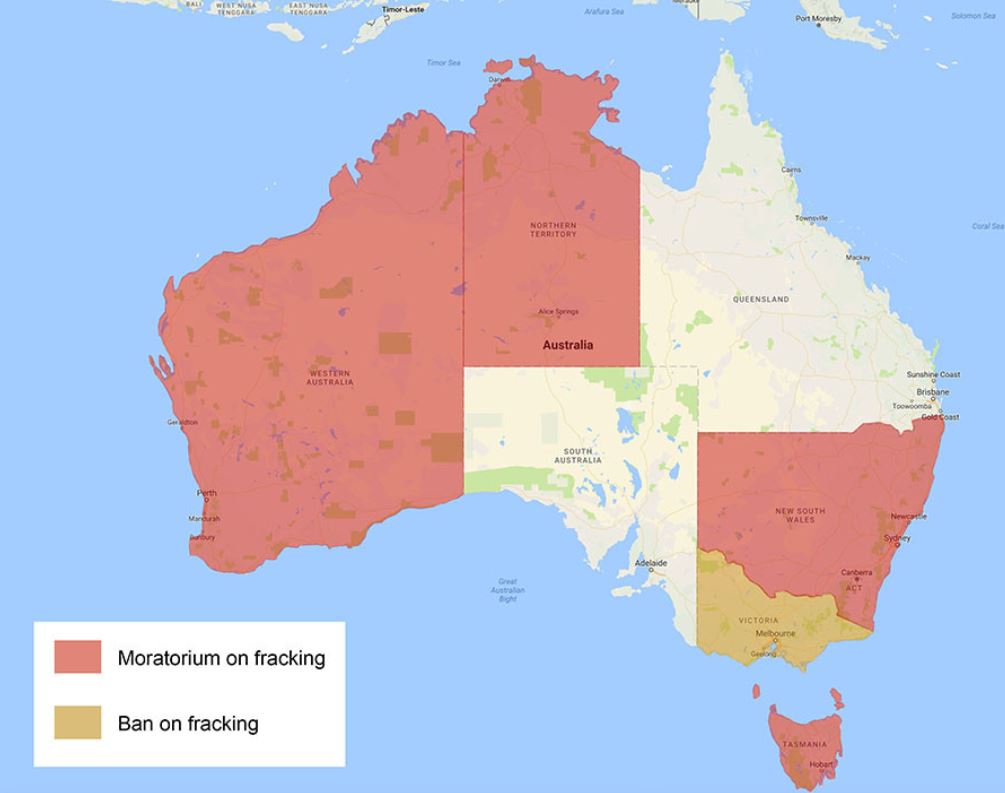
Fracking in Australia: “It’s not safe, not trusted and not wanted”
The fracking industry is facing mounting opposition in Australia.
The fracking industry is facing mounting opposition in Australia.
Yesterday, the New Labour Government of West Australia became the fifth state in the country to announce it was banning fracking in the south west of the state, which is a popular tourist destination, whilst at the same time as introducing a state-wide moratorium.
The Premier of the state, Mark McGowan, said his Government was banning existing and future fracking petroleum titles in the Perth and the South West and Peel regions.
A spokesperson for the Government said: “The McGowan government recognises the need to protect the state’s environment from risks associated with extracting petroleum products using fracking,” before adding: “We appreciate there is a level of community concern around fracking in WA, which is why we are commissioning an independent scientific inquiry.”
In the meantime an inquiry led the chair of the Environmental Protection Authority will assess the risk and regulations of fracking.
Predictably the oil and gas industry has described forthcoming the inquiry “as a waste of taxpayers’ money” because they claim fracking is “safe.” The Chief Executive of the WA arm of the Australian Petroleum Production and Exploration Association, Stedman Ellis, said “WA does not need another fracking inquiry. What it desperately needs is new jobs, investment and royalties to help repair the state budget. The industry should be allowed to get on with it.”
But increasingly communities in Australia do not believe that fracking is safe as opposition to shale extraction continues to grow. Indeed, with yesterday’s announcement, “fracking is now banned or temporarily prohibited on almost two-thirds of Australian territory,” notes one commentator.
In some states, Aboriginal communities are now on the frontline of anti-fracking fight. In the Northern Territories, over 80 per cent of the land mass has been given over to shale exploration permits since 2011.
As one community activist, Que Nakamarra Kenny, pointed out in the Guardian yesterday “In the same period the backlash from communities and landholders living on lands threatened by these permits has been growing rapidly as more and more information comes to light about the serious risks to land, water, air and human health from fracking.”
A year ago, in September 2016, the Northern Territory Government announced a moratorium on fracking. Three months later, in December 2016, they also announced an independent scientific inquiry into fracking “investigating the environmental, social and economic risks and impacts” of the controversial technology.
In July, the Inquiry issued an interim report which stated that, after the first round of community consultations: “overwhelmingly, the message received from the people who attended these meetings was that fracking was not safe, was not trusted and was not wanted in the NT.”
Rather than an endorsement of the industry, the Inquiry Panel reiterated widespread concerns. To give just four:
“There are risks associated with the injection of wastewater into groundwater systems … The Panel’s preliminary view is that the reinjection of wastewater into groundwater should be prohibited;”
“There is a risk that groundwater and/or surface water will be contaminated as a result of spills of chemicals, flowback water or produced water;”
“There is a risk that groundwater will be contaminated as a result of leaky wells”
“The Panel identified various potential risks to public health of shale gas development in the NT”.
The Panel have also raised deep cultural concerns, noting “Aboriginal people make up most of the resident populations in the areas of the onshore shale gas basins in the NT. Aboriginal people are linked to their land (including water bodies) by their ancient traditions and the contemporary use of their land in accordance with those traditions.”
The Panel added: “The Panel’s preliminary view is that Aboriginal people have not yet been given enough information about the potential risks and benefits of hydraulic fracturing.”
These concerns are being played out.
As Que Nakamarra Kenny notes in the Guardian: “To date there has been no information given to our communities about the impacts of decades of experimental fracking at Mereenie, but its legacy requires thorough investigation and public reporting to allow us to determine the true risk of these types of activities.”
Her article in the Guardian documents rising community resistance to fracking. She asks the question: “Is anyone else buying the line that fracking can bring wealth and opportunities to our communities?”
For many, the answer is a simple: No.
She adds: “I have met hundreds of people from all walks of life standing up and working together to keep our land and water safe for the next generation.” The technology is “not safe, not trusted and not wanted”.

